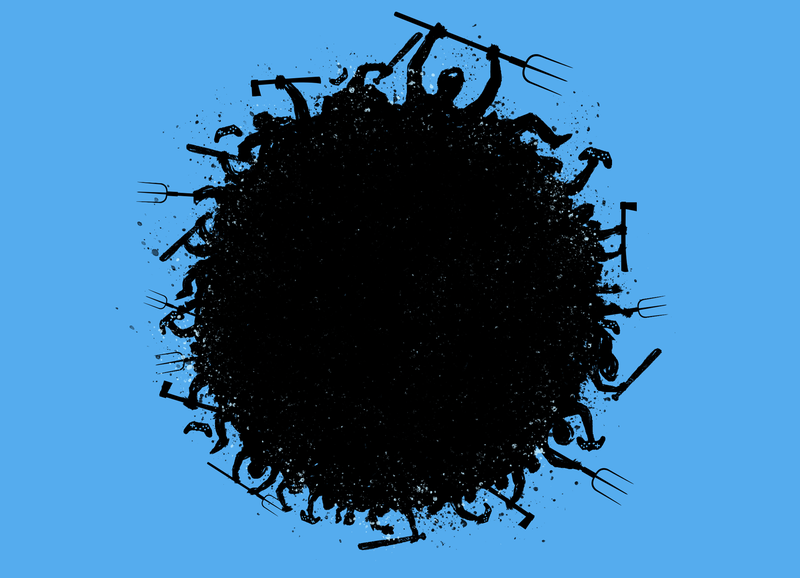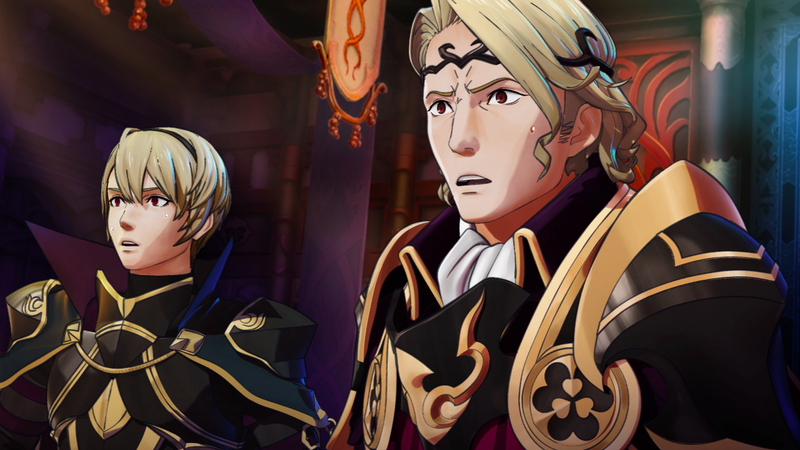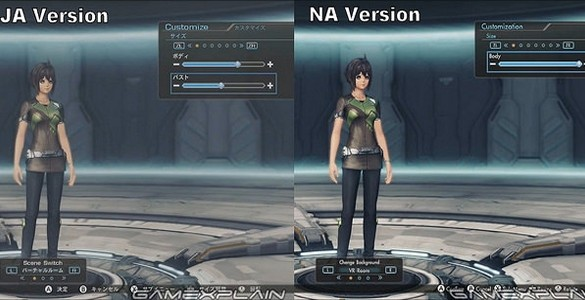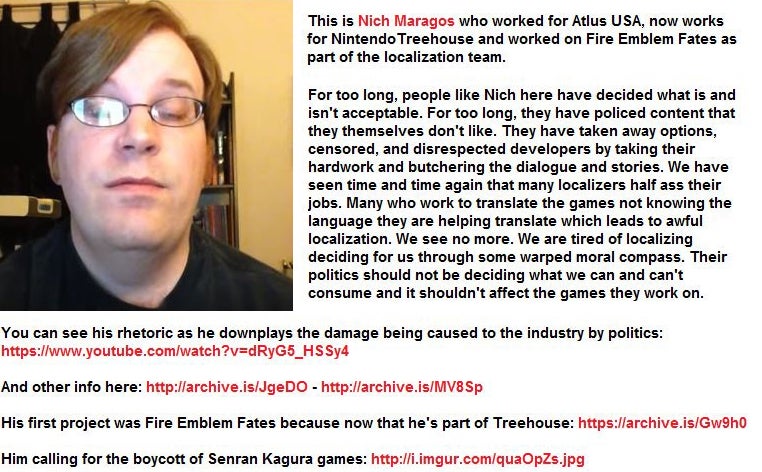
Gaming’s culture war hasn’t ended. It’s still roiling, with new fights, new targets, new depths of ugliness, but also many of the same tactics.
If you’ve witnessed this kind of “Chanterculture”/GamerGate drama before, you know the playbook: discredit, harass, shame, isolate, maybe find a skeleton in a person’s closet that calls their reputation into question. Today’s most visible target is a woman named Alison Rapp, a mid-level marketing person at Nintendo who has been accused of somehow being a driving force behind the supposed censorship of that company’s games.
She’s not the only target these days, but she’s the favored one. Her enemies, an amorphous group of pissed off gamers, have been relentless. But their furious online petitions, taken down because they violated community guidelines, haven’t ruined her. Digging through her Amazon wish-list and finding links to an anime body pillow to shame her hasn’t worked either. Recently, they’ve been trying to destroy her using a college paper she wrote in 2011.
I’ve been covering the ongoing cultural skirmishes over purported “censorship” of imported Japanese games for the last couple of months. They’re a natural extension of the ongoing reactionary freakout about the influence of so-called social justice warriors, those caricatured feminists supposedly out to sanitize games of sexual content. In these instances, the games in question usually have been changed—outfits modified, controversial sexual content removed, along with more run-of-the-mill changes necessary when translating a full video game—and so in the eyes of the aggrieved, the perceived agents of social justice have had a demonstrable effect.
Some of the hysteria is eye-rolling, but some of it involves understandably distinct perspectives about how a creative work in one culture should be presented in another. Most recently, I spoke with a group of reasonable-sounding fans
In reporting that story and others, I kept encountering the darker side of this: the anger, the personal attacks, the departure from reason that leads to smears and character assassination. Here’s just a taste of the ridiculous backlash I got just for the great sin of reporting about the subject:

That’s tame, really. When my article went online, the uglier actors in this drama could be brushed aside as fringe, but that’s changed swiftly and dramatically, particularly in regards to the campaign against Allison Rapp.
Who exactly is going after Rapp? The easy answer is GamerGate, the all-too-familiar amorphous group of gamers who organized in summer 2014 after game designer Zoe Quinn’s sex life was made public and eventually ended up at “ethics in games journalism.” Yet even those within such circles claim this particular incident has nothing to do with GamerGate, but a spin-off group called Revolt. (Confusingly, of course, saying “it wasn’t us” is one of GamerGate’s stock defenses.)
Rapp is currently the target of a social media war attempting to get her fired by accusing her of defending pedophiles. You only need search her name on Twitter to get a taste of what’s been going on for days:

You could also read about it at the Daily Stormer, a Neo-Nazi and white supremacist website describing Rapp as “the next logical step in the liberal march...toward wherever these women and Jews think it’s marching toward,” the result of “the impact of Jews and feminism on our society.”
The top comment on the story contains the phone numbers and email addresses for a number of top executives at Nintendo. The comment was left by Andrew “weev” Auernheimer, the infamous jailed hacker who once proudly announced he was a “long-time critic of Judaism, black culture, immigration to Western nations, and the media’s constant stream of anti-white propaganda.” Auernheimer encouraged people to contact Nintendo with a very specific tone.
“When you contact these people be very respectful, act as a concerned parent,” he writes of the Nintendo employees he’s listed. “Link to the pro-pedo statements she’s made but obviously don’t link back to DS [Daily Stormer] or she’ll be able to dismiss it as a white supremacist conspiracy.”
Rapp doesn’t translate or localize games, but she has been outspoken on Twitter about online abuse against women in gaming. She’s been labeled an “SJW” and has received the requisite online blowback. Last October she Tweeted a list of abusive comments she said she’s received, people calling her “cancerous” and a “feminazi face piercings bitch.”
Over time, as it became obvious that Nintendo was removing some of the sexualized content from their games as they brought them to America, angry gamers looked for someone to blame and started pointing fingers at Rapp. Those efforts intensified even more in recent weeks with the discovery of a college essay she wrote in 2011 while attending Augsburg College. It’s called “Speech We Hate: An Argument for the Cessation of International Pressure on Japan to Strengthen Its Anti-Child Pornography Laws.” It’s a provocative essay about a deeply sensitive subject and is more nuanced than its detractors portray. Rapp outlines a deep cultural divide between Japan and other countries, pointing out Japan’s traditions of sexualizing young people and its free speech traditions while contrasting them with Western efforts against child porn and what she saw as imperialist pressure by the West to get Japan to change its child porn laws. Rapp, clearly a respectful fan of Japanese culture, distinguishes between exploiting real-life children and the creation of fictionalized sexual material. At no point does she defend or advocate for the abuse of children, and in fact argues for stronger laws against child exploitation.

Tweets she made around the same time that are related to the topic have also been part of the campaign against her, as is the norm when people are targeted as Rapp has been. There’s a vague one, for example, where she’s upset about the arrest of a man found with child pornography after burglars robbed him and tipped off police. The context isn’t entirely clear, but she directs people to her paper, which criticizes the West’s disproportionate effort in tracking down exploitative media compared to identifying the systemic issues causing their creation.
Rapp’s essay isn’t perfect and her tweets suggest she was, at least years ago, someone more comfortable with the ideas of teens being seen as sex objects than the average American might be. But, no shit: it’s an essay written by a young college student who was very into Japanese culture, where societal standards are different. The basic premise of her essay says Japan should be allowed to define its own cultural boundaries and not bow to the pressures of outside forces. Ironically, while Rapp has become a symbol of the supposedly nefarious social justice warriors censoring Japanese games, she’s being attacked with an essay in which she argued that Japanese culture should stay Japanese.
By spending paragraphs explaining Rapp’s essay and pondering five-year-old Tweets, I’ve already fallen into her critics’ trap. I’ve already spent hundreds of words deconstructing a piece of writing that was weaponized for character assassination. It’s a familiar page from the playbook in today’s video game culture wars. It’s about finding a skeleton in someone’s closet—or something that can be construed as such—and using it to undermine them.
We’ve all probably said something on the Internet that’s off-color or offensive, or just not given proper context in the size of tweet. Many of us have held problematic views at different stages in our lives, particularly when engaging in intellectual exercises or writing academic papers. In the past, we’d generally expect to be given a chance to move on and leave our past selves behind. In today’s culture wars, that’s not the case. The past is present, especially when your words are only a Google search away.
It’s easy to rip lines from the essay and make Rapp look awful, which is how the anti-sex trafficking group The Wayne Foundation got involved. On March 1, co-founder Jamie Walton, herself a victim of sex trafficking, began tweeting about how Rapp should be fired from Nintendo.

Walton claimed she spoke with Nintendo of America’s “supervisory line” and reported Rapp. She then retweeted voices of support from people, many who publicly associate with GamerGate, while saying she was “not GG” or “AGG” [anti GamerGate]. She added that she didn’t “suggest to @NintendoAmerica supervisors that @alisonrapp be fired,” but she “absolutely” thinks she should.
It appears Walton is a genuine advocate, a victim of a horrifying crime who fights for others. She admitted to being hoodwinked by “third party trolling” in the past and said she’d recant Rapp’s information, were it to be proven untrue. Willingly or not, Walton’s given Rapp’s detractors what they were looking for: legitimacy from outsiders. It’s another weapon.
When I asked Walton how she heard about Rapp’s situation, she responded brusquely.
“I don’t have time for this, TBH,” she said over email. “I’ve been a counter trafficking survivor advocate since 2009. No one is interested in doing press about that for years, but suddenly Gamergate and anti Gamergate insert me into their dispute and the media wants to talk. All that does is break my heart. I want nothing to do with either side, and I find this entire encounter to be ludicrous.”

Nintendo did not comment for this story, nor did Rapp. The company is notorious for staying quiet and rarely allows employees to speak outside interviews about upcoming games. But it’s not as though Nintendo couldn’t find the essay involved in the latest attacks—it’s prominently on Rapp’s Linkedin page.
Rapp hasn’t ignored what’s going on. She jokingly calls herself a “conspirator in @NintendoAmerica Treehouse” on Twitter and has pushed back against the harassment.
“Aaaahhh, nothing quite like waking up to a bunch of GG-ers and white supremacists in my mentions, trying to ruin my life because video games,” she recently tweeted. “+1 awful thing: gg-ers bastardizing social justice language & feigning concern for at-risk groups so they can appear to be takin high ground.”
These tweets are interspersed with photos and comments about her vacation in Japan, where she’s currently on her honeymoon.
“btw thank you for your support today,” she wrote. “It’s good to hear from friends during this wacky time. Again, thank you for anything and everything you’re doing to keep my mentions from being 100% garby goober garbage.”
The way people talk about Rapp, you’d assume she was involved in the translation of Fire Emblem Fates, a key person behind removing things like the face petting mini-game. Except there’s no proof of this. Months ago, as similar groups raged over Xenoblade Chronicles X, Rapp told me
When it comes to Fire Emblem Fates, Rapp has not been the only person of interest. Nich Maragos, a former Atlus USA translator, now works at Nintendo. His first project at Treehouse was Fire Emblem Fates. In recent weeks, he’s been one of the people targeted by this group, in the search for a boogeyman. (I’ve cropped part of it out, but the whole image is here.)

Archive.is links? Check. A crappy photo of the person being profiled to make them look silly? Check. The only thing missing from this image is a bunch of red lines “connecting the dots.”
To give you a sense of the angle of these attacks, when one of Maragos’ critics compiled this information on the pro-GamerGate “Kotaku in Action” (no relation!) subreddit, they concluded by pointing out that Maragos is a “NeoFAG poster,” a reference to the popular gaming message board NeoGAF, which has been hostile to GamerGate and the kinds of things posted on KiA.
Maragos’ grand offense was calling out the sexually provocative Sengan Kagura games. He also financially supports two alternative game critics through Patreon. One of those critics makes a whopping $90 per month. Would it shock you to learn the other was openly critical of the more literal-leaning fan translation of Fire Emblem Fates? Surely not. (Maragos declined comment for this story.)
Another target, Rich Amtower, who’s worked on previous Fire Emblem localizations at Nintendo, was forced to lock his Twitter account because people were combing for ammunition from as far back as 2009. What dark secrets did they find, buried in his ancient tweets? He doesn’t actually speak Japanese. (For what it’s worth, this isn’t altogether uncommon, based on the translators and localizers I’ve talked to.)
Since then, Amtower has deleted some old tweets and unlocked his account—for now.
“Twitter’s too ephemeral to want all of it hanging around forever,” he said. “I saw a lot of things I’d tweeted within a specific context, quoted outside of that context, and it made me sad. You can’t *really* delete your past, but you can acknowledge that past you, present you, and future you may all have very different thoughts.” Amtower did not respond to my request for comment.
Here’s the thing: it doesn’t matter whether it’s GamerGate, Revolt, or anyone else. The group is irrelevant; it’s that the tactics used to shame and victimize have become disturbingly normalized. When one attempts to assign a name to the group perpetuating the assault—be it GamerGate, Revolt, or whatever else—those groups’ supporters immediately respond by saying that the actions of individuals don’t represent the group. (Perhaps someone can tell that to the people vilifying individuals from a large group within Nintendo.)
In fact, the campaign against Rapp has demonstrated a fascinating collection of fractures within these hard-to-pin-down groups. There’s the alleged censoring of 4chan when it comes to discussion of Alison Rapp:

There’s Eron Gjoni, author of the relationship screed against Zoe Quinn that kicked off GamerGate, saying that “attempting to get people fired for holding problematic views is exactly the sort of thing you’re supposed to be against.”

This was enough for someone on 8chan to declare that “Eron is still an SJW feminist.”
Others were shaken in different ways. “This has always been THE most difficult part of being in GG for me,” wrote KiA poster Aurondarklord. “Finding that balance of being effective without becoming what we hate. In this case, to be fair, at least, unlike the SJWs, what we’re accusing Alison Rapp of is at least true and we have direct evidence of it. But WHY are we doing this? What has she done, specifically, that makes her deserve to be fired? Has she attacked us in some way? Breached an ethical obligation? Provably lied to the detriment of a person or a game? Done anything other than be an SJW and believe SJW things?”
You’re so close, Aurondarklord. So close.
Others held the line. “If we fail to exert social pressure against these people,” said poster Kaarous in the same thread, “we might as well just close the sub[reddit] right now. More importantly, if we turn the ‘you should be fired’ game against them, they might actually knock it the fuck off when it starts effecting [sic] them personally and financially.”
This is, of course, a muddled and disingenuous argument. “Them?” “These people?” Rapp doesn’t translate or localize games, and didn’t even work on Fire Emblem Fates. She’s just another person who works for a video game company and has publicly supported feminism and social justice. The campaign against her and her colleagues is a witch hunt, and just the latest of many. It won’t be the last.
Image Credit: Jim Cooke
You can reach the author of this post at patrick.klepek@kotaku.com or on Twitter at @patrickklepek.